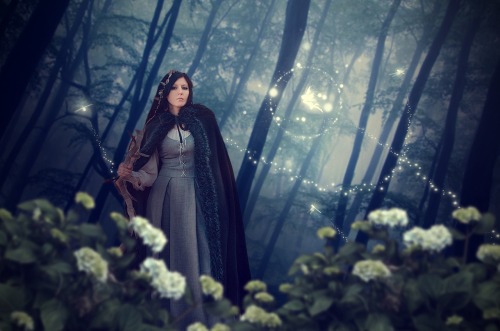Making Magic Systems Better, Lesson 2

View previous lesson In the last lesson, I pointed out that most magic systems tend to be rather stale, that they don’t create a sense of wonder. We typically only encounter a strong sense of wonder when we come upon something new. In fact, wonder comes when we find ourselves in a strange situation and […]
Making Better Magic Systems, Lesson 1

The most popular books and movies of all time all have one thing in common: They transport audiences better than other books and movies in their genre. Usually, as in films like Avatar or books like Lord of the Rings or Dune, the tale transports you into another time and place. But the tale also transports its audience emotionally. In short, whatever emotion […]
Heroes and Anti-Heroes

When you’re writing a novel, you will be creating heroes and anti-heroes. You may create a protagonist who is “heroic,” or one who is an “anti-hero.” But do you know the difference between the two?
David Farland’s Writing Tips: Surprise and Revelations
An even richer source for surprise than setting is your cast. You can of course use the same techniques for creating surprises in characters as you do for settings. You can for example make a character a bit strange or grotesque. In The Godfather, we are fascinated by Don Corleone because of his strange nature—he’s powerful, seemingly warm-hearted one moment and unbelievably vicious the next.
David Farland’s Writing Tips: Let the Words Flow
One of the most important skills that any writers learns is to simply sit down and write. For some
people, this is as easy as sitting in a chair and typing. For others who are burdened with stresses,
distractions, or indecision, writing can be more of a challenge.
Why Emotional Beats in an Epic
Part of what makes an epic an epic is that the reader tries to get a panoramic view of life, to experience a wide range of human emotions. I think that Tolkien handled this well in LOTR. He has a lot of warmth and humor and nostalgia in early parts of the story, but then he builds up to terror, despair, and horror. There is some triumph and tragedy and a lingering sense of isolation and remorse for our hero, too.
David Farland Writing Tip: Dream Making
As a storyteller, I make my living as a tour guide of sorts, escorting my audience through vivid dreams. As a guide, I create the setting, with its landscape, history and its wonders. I may suggest entire cultures with imaginary languages and customs. I might develop characters with their own unique habits and ways of […]
David Farland’s Writing Tips: Those Troublesome Transitions
Many new writers figure out how to write great descriptive scenes, but they don’t know very well how to link them together. Let me give you an example. Let’s say that you open a novel to a scene ten pages in that starts, “Let me explain this to you just once: you stay away from […]
David Farland’s Writing Tips—Three Mistakes in Tone
One of the most common problems I see with new writers is a “mistake in tone.” You know what I mean if you’ve ever played in a band. A new kid comes in, you’re trying to play a song, and he blats out a sour note on a trumpet. The same thing happens in writing. […]
David Farland Writing Tips: Style and Tone
Unfortunately, there is so much covered under the umbrella of style and tone that it would take a good long book to deal with it. In fact, I’ve read several good books on the topic, and I can’t cover much here. The word “style” when used in literary circles refers to all of the unconscious […]
